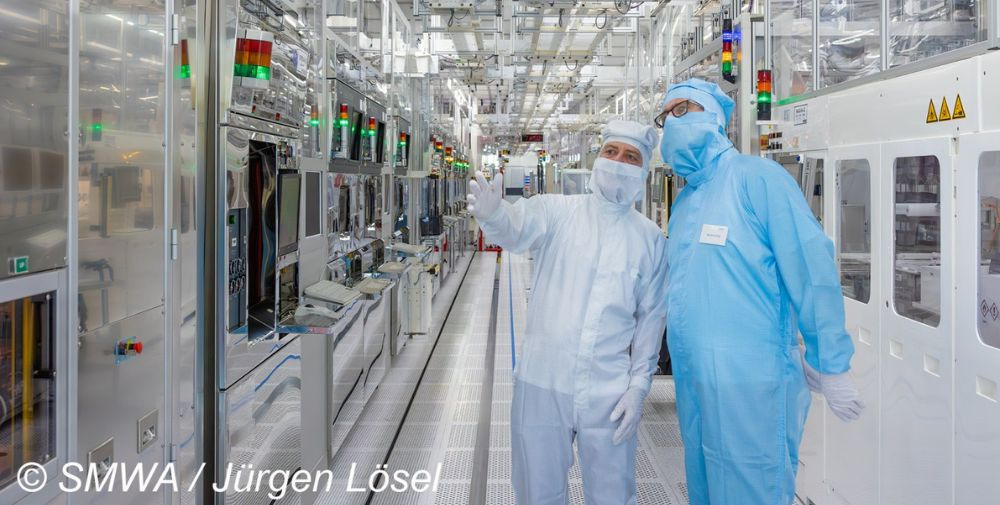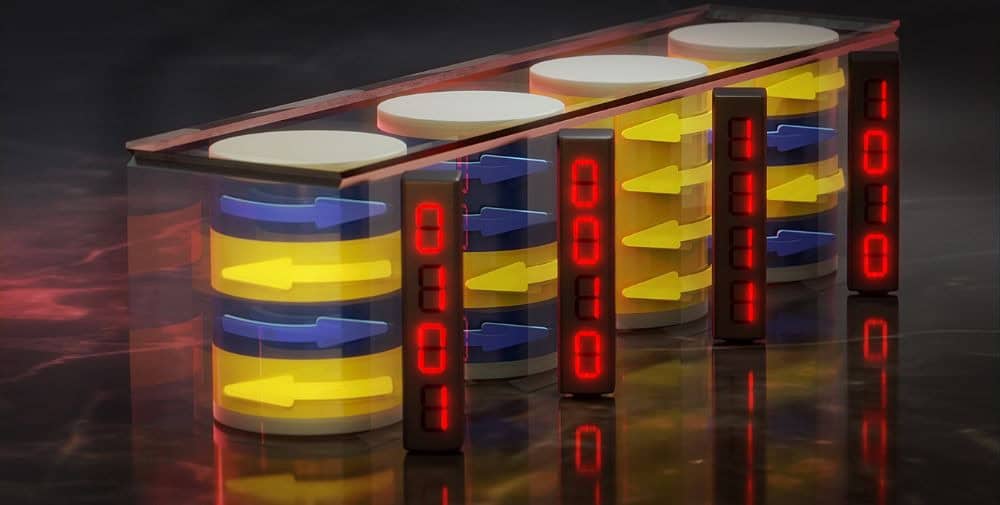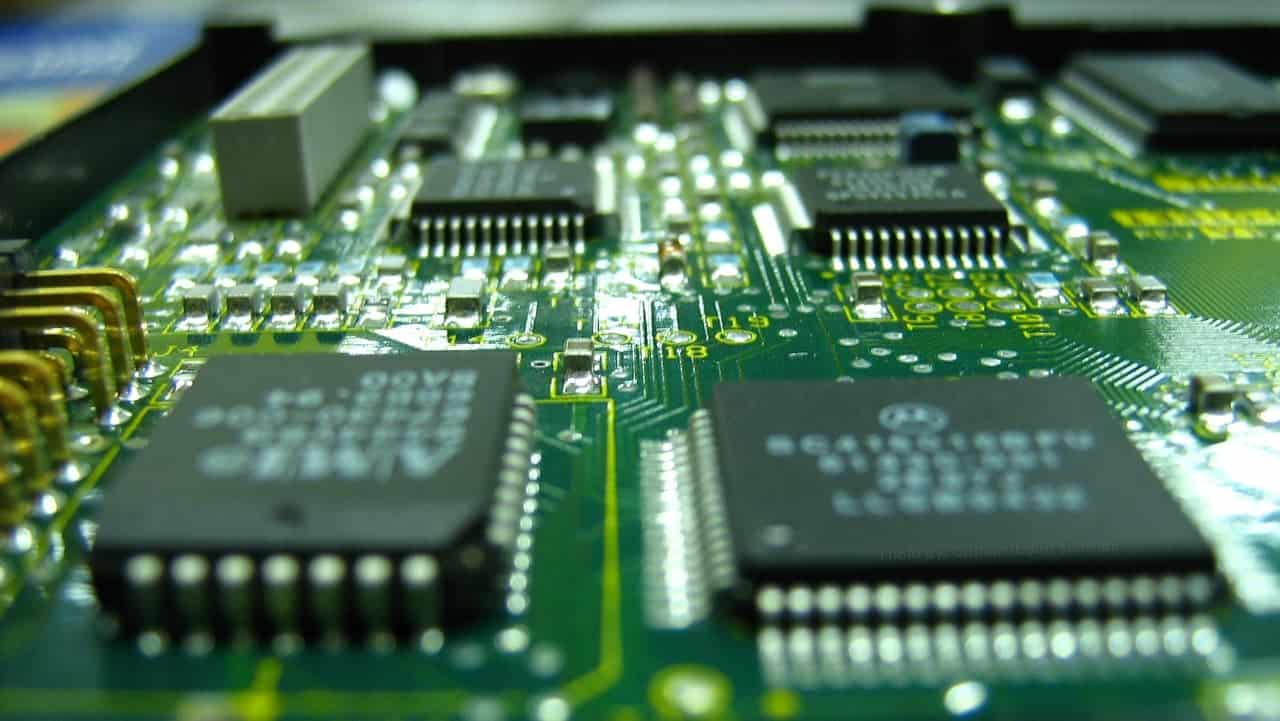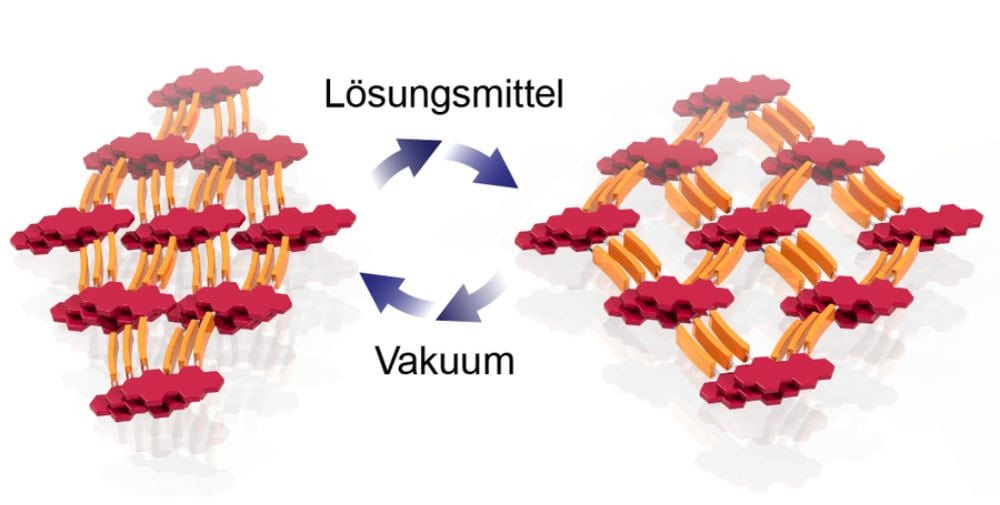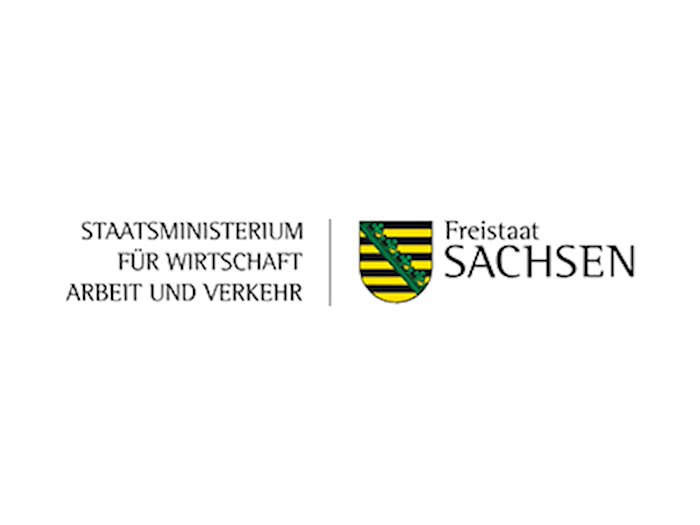
Energy shortages, the war in Ukraine, the coronavirus pandemic and disrupted global supply chains: The current crises, which have occurred at close intervals and are interlinked, are jeopardizing economic and social stability. The semiconductor industry is a key industry for surviving these so-called polycrises. The microelectronics industry, to which Saxony’s Minister of Economic Affairs Martin Dulig is dedicating a theme day today, is crucial for the competitiveness of European economies and – in view of the geopolitical upheavals – ultimately also for security in Europe. “Silicon Saxony”, Europe’s largest microelectronics location, already manufactures every third chip produced in the EU.
The microelectronics/information and communication technology sector accounts for 14 percent of Saxony’s industrial turnover and 14 percent of the foreign turnover of Saxony’s industry. Around 3,650 companies with 76,000 employees are active in the high-tech triangle of Dresden – Freiberg – Chemnitz. To shed light on the industry and current developments, Minister Dulig is today visiting five semiconductor companies that combine excellence with resilience: Freiberger Compound Materials (Freiberg), Sachsen-Kälte (Dresden), Infineon (Dresden), Jenoptik Optical Systems (Dresden) and Adenso (Moritzburg).
Martin Dulig: “Our society needs chips to master the challenges of today: digitalization, energy transition, electromobility, artificial intelligence. With the research institutions, producers, software companies, suppliers and service providers operating here, Silicon Saxony covers the entire microelectronics value chain and therefore has an absolutely unique selling point. In addition, Saxony is the German state with the highest research density. Thanks to this close integration of industry, cutting-edge research and development, the Free State is excellently positioned in Europe and the world. The know-how from Saxony is helping the EU to gradually free itself from its high dependence on the US and Asian markets in particular. ‘Made in Saxony’ stabilizes supply chains and makes Europe as a whole more crisis-proof.”
Bosch, Globalfoundries, X-Fab and Infineon operate some of the most modern semiconductor factories in the world in Dresden. In the future, Jenoptik (planned from 2025) and TSMC (as ESMC, expected from 2027) will also produce in Saxony. The establishment of the Taiwanese semiconductor group TSMC in Dresden is the largest single investment in the Free State of Saxony to date, with a volume of around ten billion euros. It makes “Silicon Saxony” one of the five largest semiconductor locations in the world – a quantum leap for Saxony as a business and science location overall.
Dulig pays tribute to the Saxon “chip spirit” of the local industry and its employees: “Microelectronics benefits from the many highly qualified engineers and skilled workers who have contributed to the Free State of Saxony taking a leading position in the semiconductor industry in Europe. In light of the newly emerging production capacities, we are working hard to ensure that Dresden remains and becomes home to top people from near and far with attractive training and further education as well as good employment opportunities.”
Freiberger Compound Materials GmbH (FCM)
The privately run family business is a leading global manufacturer of compound semiconductor substrates for microelectronics and optoelectronics. Minister Dulig takes a tour of the production facility to learn about gallium-based semiconductor manufacturing: the first part is dedicated to crystal growing, the second part to the wafer area with a view of the clean room.
The company belongs to the internationally positioned Israeli company Federmann Enterprises Ltd. It was founded in 1995, but builds on the long tradition of the semiconductor industry, which has been based in the mining town of Freiberg since 1957. Over the past 25 years, more than 200 million euros have been invested in the modern production facility with a current clean room area of 1,700 square meters, including sophisticated analysis and measurement technology. The main area of application for Freiberger’s semi-insulating GaAs wafers is the production of state-of-the-art high-frequency components for electronic signal amplification in wireless communication (4G/5G). The company employs around 350 highly qualified staff.
Sachsen-Kälte GmbH Dresden
The specialist for refrigeration and air conditioning technology (30 employees) develops and installs air conditioning in server rooms, among other things. The company wants to expand its special devices for the semiconductor industry and also move deeper into medical technology. The ground-breaking ceremony for a new company building in Dresden-Klotzsche took place in 2022. Work on new future-oriented chillers and heat exchangers is to be bundled there. These are special precision cooling units for plant engineering in semiconductor production as well as for biotechnology and medical technology. Customers include the major semiconductor manufacturers in Saxony – Infineon, Globalfoundries and Bosch. A new “Green Technology of the Future” service center is also to be built in the new building. After visiting the production area on Marie-Curie-Straße, Martin Dulig finds out about the next generation of refrigeration systems at the site of the new building.
Infineon Technologies Dresden GmbH & Co. KG
Infineon broke ground for a new plant in Dresden in May 2023. With an investment volume of five billion euros, this expansion at the existing site in the north of Dresden is one of the largest single investments in the history of the semiconductor manufacturer. Production is scheduled to start in fall 2026. Around 1,000 additional highly qualified jobs are to be created.
Infineon intends to use this investment to strengthen its manufacturing base for semiconductors that promote decarbonization and digitalization. Analog/mixed-signal components are used in power supply systems such as energy-efficient chargers, small motor controllers for cars, data centers and applications in the Internet of Things. The interaction of power semiconductors and analog/mixed-signal components makes particularly energy-efficient and intelligent system solutions possible.
Minister of Economic Affairs Martin Dulig takes a look at the current status of the construction work. He will then visit the silicon-based production of semiconductor components in the clean room.
Jenoptik Optical Systems GmbH Dresden
Jenoptik is a globally active photonics group whose key markets include semiconductors & electronics, life science & medical technology and smart mobility.
Dresden is one of the main locations for the micro-optics sector. Jenoptik produces micro-optics and sensors in Dresden, which are used in lithography systems for semiconductor equipment manufacturers. For many years, the company has been a reliable technology and manufacturing partner to this industry, which has an enormous global demand for semiconductor components and microelectronics.
Jenoptik is currently investing around 90 million euros in the Dresden site. The new high-tech fab at Airportpark Dresden is scheduled for completion at the end of 2024. Production is scheduled to start at the beginning of 2025; the number of employees on site will increase to more than 120 in total.
Adenso GmbH
The theme day will end with a tour of the Adenso GmbH production facility. Martin Dulig learns about innovative robot applications from “Silicon Saxony”. Founded in 1998, the company specializes in the development, assembly and delivery of modular robot solutions for high-vacuum environments. The team of around 50 experts from the fields of mechanical engineering, electrical engineering and software technology has already developed around 250 projects for customers in the semiconductor, optics and solar industries worldwide.
– – – – – –
Further links
👉 www.smwa.sachsen.de
Photo: SMWA / Jürgen Lösel
